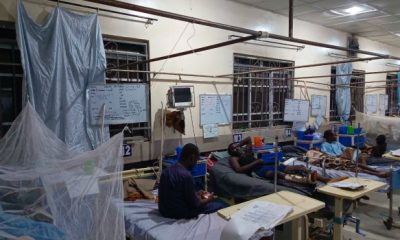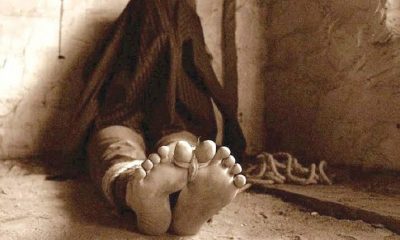Metro
Kidnappers Used Poisonous Snakes To Terrorise Us: Victims

Abducted victims recently freed from captivity have revealed that kidnappers used poisonous snakes to terrorise them.
The victims, who recounted their ordeals in separate interview with News Agency of Nigeria, said there were many snakes in the forests inhabited by the bandits. They said the snakes often bite both the kidnappers and the victims.
One of them, who craved anonymity, told journalists that kidnappers threw them into snake-infested spots.
“The kidnappers know the areas infested with snakes and would often throw the victims there. Immediately they see snakes, the fear-stricken victims will want to run away. The sight is used to frighten people.
“That is when a victim can ask friends and family members to sell everything – house, land, cars, household items, shoes, just everything – to raise the ransom,” the victim explained.
An investigation revealed that the worst snake-infested forests are in Birnin Gwari in Kaduna State and Kala-Balge, near Lake Chad, in Borno.
Other areas included Shaki in Oyo State, Borgu and Kagara in Niger, Karim Lamido in Adamawa, and Lau in Taraba.
Some victims said the situation is worse now with the current heat, as snakes leave their holes in search of fresh air and food.
“While I was in captivity, snakes bit some victims. The kidnappers were not spared as some of them also got bitten,” said a victim, who was taken into a thick forest in Kagara, in Niger.
Abdulsalam Nasidi, the chairman of Echitap Study Group, the outfit in charge of Echitap Anti-Snake Venom(ASV), who spoke on the development, confirmed that banditry was associated with areas prone to snake bites.
Mr Nasidi, whose group collaborates with Micropharm UK Ltd and Instituto Clodomiro Picardo (ICP), Costa Rica, to bring the drugs to Nigeria, decried the rising cases of snake bites in Nigeria.
“Unfortunately for us, the cost of snake bite treatment has gone well beyond the reach of the poor,” he said.
While confirming that some abductees indeed returned with snake bite wounds, he said the cost of treatment could only be affordable if the ASV drugs were produced locally.
“The rise in the value of the dollar has made the cost of foreign production so high that the poor man who, in most cases, is the victim of snake bites, cannot afford it,” said Mr Nasidi.
He identified the most poisonous snakes in Nigeria as carpet viper, puff adder and black cobra.
On kidnappers deliberately exposing their victims to snakes, he pointed out that the reptiles do not know the difference between a kidnapper and his victim.
He particularly condemned the inhuman behaviour of exposing abductees to snake bites and regretted the “zero” premium placed on human life.
“From the accounts of victims, kidnapped people could see a snake coming toward them and are not allowed to run. Nothing is more traumatising,” Mr Nasidi added.
(NAN)
-

 Entertainment4 days ago
Entertainment4 days agoNigerian Singer, Ifunanaya, Died After Snake Bite In Abuja
-

 News5 days ago
News5 days agoI’ll Rather Build Industries Than Build Mega Churches — Prophet Sam Ojo
-

 Opinion4 days ago
Opinion4 days agoBola Oyebamiji: Beyond Skelewu Dancer: The Rising Technocrat Poised To Govern Osun State In 2026 By Wale Atoba
-

 News4 days ago
News4 days ago20-Year-Old College Student Found Dead With Body Parts Missing In Kogi














